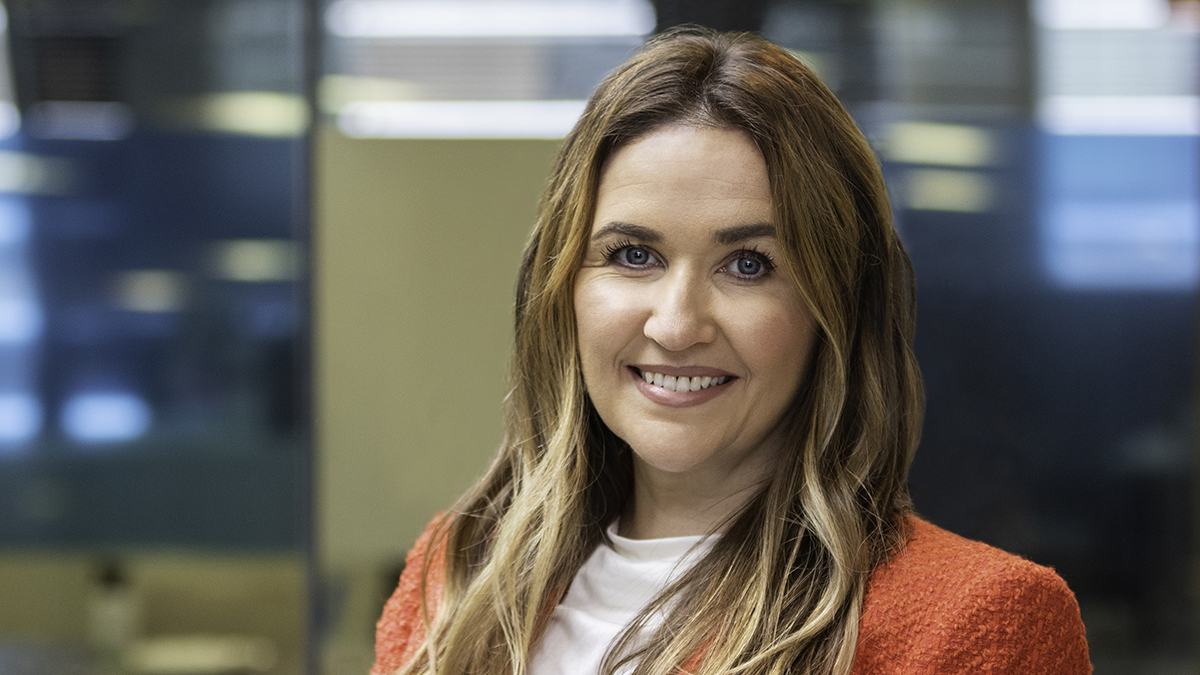Specialty means more than just ‘bespoke’
Bermuda Risk Summit debates the nuances of specialty re/insurance
Re/insurance executives stress that specialty is much more nuanced than the sum of its parts, as they discuss growth opportunities and managing volatility at the Bermuda Risk Summit
Specialty lines is a much more nuanced business than simply providing non-traditional coverage, industry executives argued at the Bermuda Risk Summit.
A panel discussion examining this growing sector revealed the different ways Bermuda insurers categorise specialty lines. The executives also discussed growth opportunities in specialty lines and the challenges of dealing with volatility and differentiation in a competitive market.
Aspen operates within a property and casualty (P&C) and specialty framework, according to its group chief underwriting officer, Christian Dunleavy. “Specialty is bespoke and unique risks that don't really fall into one of the other two buckets, but the emphasis within companies can be quite different," Dunleavy said.
"For some, it's more credit, it's shorter-tail, maybe it's more cyber. But, generally, it’s tailored classes that you have to dive into in a pretty detailed way to understand the risk, and then think about how it fits into the full portfolio,” he said.
Seamus Fearon, executive vice-president for credit risk transfer and European markets at Arch Capital, said specialty meant taking advantage of “dislocation”, such as the company’s participation in the credit space where there has been “blood on the street” amid the global financial crisis.
'Specialty is bespoke and unique risks that don't really fall into one of the other two buckets, but the emphasis within companies can be quite different'
Christian Dunleavy, Aspen
Like Aspen, MS Reinsurance divides itself between P&C and specialty. Its chief underwriting officer in Bermuda, Chris Hayward, said terror, cyber, nuclear and contingency are “historically” among the company’s core specialty lines.
“The issue with those is that, to a large extent, they're quite finite. The question then is, how do you grow them and how much critical mass can you put there. Over the past eight years, a lot of our time and effort has been in financial risks – trade credit, surety and mortgage. What specialty is not for me is casualty,” he said.
To Kostya Zolotusky, chief executive of Itasca Re, specialty means, above all, expertise. “If you are able to originate, structure and place risk differently from a commoditised product, then that constitutes specialty,” he said.
Itasca Re, the reinsurance arm of aviation-focused alternative investment manager Castlelake, is “truly” specialty, he said, because it is focused exclusively on one line, aircraft finance.
“The risks associated with financing commercial aircraft are very large-scale numbers involving insurance exposures, which requires an awful lot of expertise about the market, the assets and the jurisdictions. Pulling that together and getting to the unique skillset makes it a unique product,” Zolotusky said.
Dunleavy pointed to the overlaps that can exist, for example, between workers' compensation and casualty lines.
“A lot of companies have specialty underwriters looking at that, but I would argue cat underwriters should be doing it because you're using the same pot of capital, essentially,” he said.
Specialty in Bermuda has evolved, he added, from the natural catastrophe business that it is historically most famous for.
Bermuda was the obvious choice of jurisdiction for specialty business, Zolotusky said.
“When the Soviet Union collapsed, we ended up moving a lot of the registration of airplanes into Bermuda and it worked phenomenally well. The historical stability and the current quality of the regulatory environment and reinsurance infrastructure, certainly made it almost unchallenged relative to the alternatives,” he said.
Fearon was the chief actuary of Arch’s mortgage segment during the time when mortgage was developing as a class of business in the Bermuda market.
“I was responsible for our credit risk models and stress testing framework, and so we had a lot of meetings with the Bermuda Monetary Authority, and we found their interactions with us to be really good,” he said.
Growth opportunities
On growth opportunities in specialty, Hayward pointed first to cyber.
“The insurance premium for cyber is estimated for 2022 to be $10bn and there is talk that, by 2025, it's going to be more than $20bn. So, there's real opportunity in that area. We're also looking at the aviation space, but that’s not going to be a long-term class for us,” he said.
Zolotusky said a key driver for aviation as a specialty insurance line of business is the recognition that the global regulatory environment for banks is “changing rapidly”.
“The insurance market is extremely well positioned, if it creates the capability to understand particular areas, whether it's transportation, satellites or project finance, and structures those risks, where the banks essentially become a funding source, and are no longer the primary structurers and managers of those transactions,” he said.
“We see a lot of opportunity in the airplane space, but there's a lot of other asset classes that will have similar challenges that we see with banks in aviation. And there's no question that the insurance industry is much better suited to take on those risks and essentially absorb the spaces that the banks are exiting,” he added.
'We see a lot of opportunity in the airplane space, but there's a lot of other asset classes that will have similar challenges that we see with banks in aviation. And there's no question that the insurance industry is much better suited to take on those risks and essentially absorb the spaces that the banks are exiting'
Kostya Zolutosky, Itasca Re
In the six years before the Covid pandemic, Arch’s P&C underwriting cycle “leaned into” the mortgage insurance space, Fearon said.
“Fast forward to today and the P&C market will continue to harden, and we're able to start taking advantage of our mortgage insurance exposures as we see interest rates rising and potentially impacting the value of homes. So, having different ponds to fish from has been very valuable,” he said.
The discussion was moderated by Kirsten Beasley, head of the Bermuda office of Willis Towers Watson, who asked the panellists whether they use specialty lines as an opportunity to "absorb volatility in their portfolio".
Dunleavy joked: “You certainly can absorb some volatility in a specialty portfolio if you're not careful!”
He said the mistake some reinsurers have made is wanting to move into specialty because they “dislike” the natural catastrophe business.
“If you're running away from natcat but running into cyber?! There are a lot of the same potential pitfalls in cyber that have been causing problems in the natcat space in the last couple of months,” he said.
“You could argue that the cyber world is 15 to 20 years behind where natcat modelling is, and cyber is in a never-ending race against the bad guys who are always coming up with new ways to try and exploit some of the vulnerabilities out there. Like cyber, there are other classes within the specialty arena that can be pretty volatile. So, if you kind of go into specialty classes with a rose-coloured lens, then potentially you're going to be in for a surprise,” he added.
Hayward stressed that volatility with property cat “does not mean there is anything fundamentally wrong”, but this is a sign that volatility "has not been priced for".
“Specialty, clearly, will help reduce that volatility, but what we're trying to address as reinsurers, is to build pockets of exposure,” he said, “and at MS Reinsurance we have eight to 10 pockets of exposure.”
Ruthless discipline
On allocating capital to specialty, Dunleavy said there is a need to be “ruthlessly disciplined about coming in and out of some of those classes because they're not particularly big markets”.
That belief has led Aspen to have “generalists who are ‘specialist enough’ to be able to adapt their portfolios".
“If you hire an aviation underwriter, they want to write their aviation book and it's very difficult for them to be truly objective. So, I've tended to land on the side of a little more generalist teams, who can step in and out of the markets, but that takes a very strong hand, meaning management stays very close to those teams to really define what the company’s appetite is. It also gives people a sense of job security because, if you pull back from a class for some period of time, then that's meant as the right move for the organisation, and they should feel confident you aren’t then going to put them out on the street.”
A company can differentiate itself within the specialty arena, Fearon said, through investment in risk modelling and data analytics.
“We have a whole team in Washington DC with the appropriate skill set to build out everything we need to support us in mortgage. We've also made a big investment in having a chief economist focused on macroeconomic research as it pertains to the housing market,” he said.
To Zolotusky, there are three “ingredients” to success in specialty – expertise, analytical capability and quality of equity.
“We have a team that has a very deep understanding of all aspects of the aviation market in asset finance. We have analytical capability that I could compete with anybody out there in terms of understanding aircraft asset risk and the anticipated volatility in the market. And our equity is one of the world's largest aircraft-leasing platforms, Castlelake,” he said.
Specialty can thrive amid global disruptive forces, such as inflation, Hayward said, if pricing includes the correct “loss cost”.
“If you’ve been a Latin American underwriter, then inflation is one of the first questions you ask, but not in the US and Western Europe until it became a hot topic last year,” he said.
“Standalone” terror and aviation war are emerging specialty lines that MS Reinsurance is watching closely, he added.
US federal government support during the pandemic has meant homeowners have “picked up additional equity in their home”, Fearon said, meaning an existing mortgage insurance book has derisked its exposure.
“The Federal Reserve tightening monetary policy to combat inflation, however, has been much more concerning,” he said, “and this is the first year in the last 10 when we're actually forecasting a price decline.”
He continued: “But, ultimately, that will lead to a strengthening of the market because a dislocation between the market value of a home and its intrinsic value really is not sustainable in the long term. It's good for the mortgage reinsurance industry to demonstrate that a small price correction can be absorbed within the space without any material loss. And we should see a price correction.”



